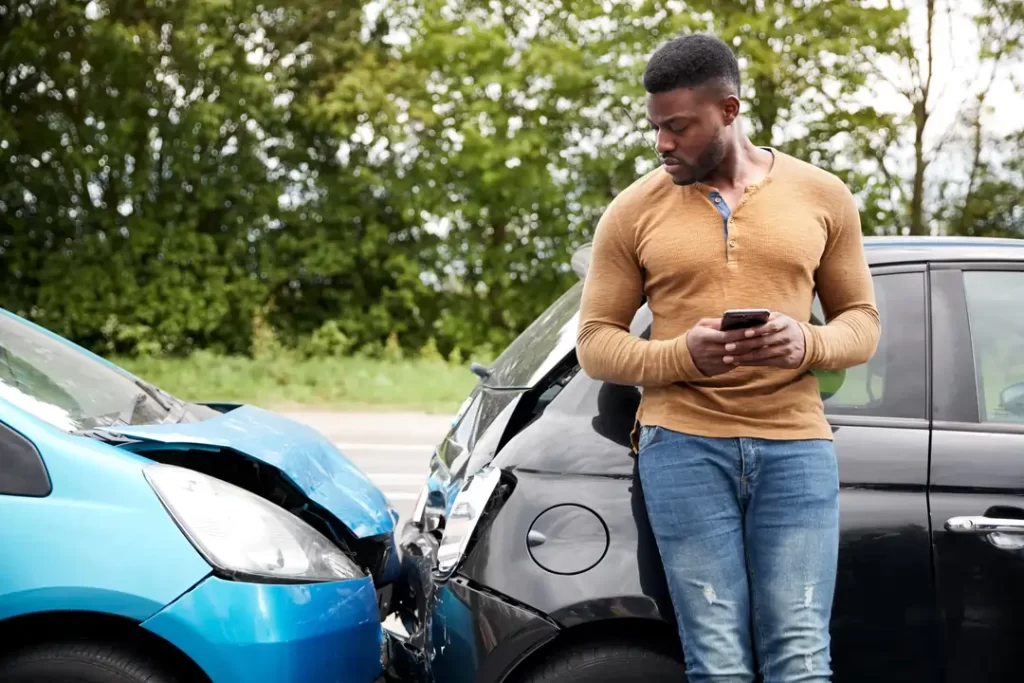personal injury lawyers
Fighting for maximum injury compensation for you and your family
No Fees Until We Win


Car Accidents Involving Uber or Lyft Drivers: What You Should Know
Uber and Lyft dominate the US ridesharing market, with approximately 7.1 million drivers
providing hundreds of millions of rides annually. However, many drivers fail to notify their insurance providers, leading to potential issues in case of an accident.
As the popularity of these services continues to grow, so does the potential for car accidents involving their drivers, making it essential for both passengers and other parties involved to understand the legal system and know what to do in case of an accident.
In New Jersey, this oversight can result in inadequate coverage and financial vulnerability. To address this, drivers should explore rideshare insurance options, which specifically cater to their needs.
This ensures better protection and peace of mind while driving for Uber or Lyft. Here’s what can happen if you’re involved in an accident while driving for Uber or Lyft.

The Growing Impact of Uber and Lyft
Uber and Lyft have revolutionized the transportation industry, offering a convenient and affordable alternative to traditional taxis. These companies have revolutionized the market by offering users a seamless experience through their user-friendly mobile apps.
In 2023, a Pew Research Center study revealed that 42% of Americans utilized rideshare services such as Uber or Lyft in the previous year, indicating their popularity. Nevertheless, as the number of rideshare drivers on the roads rises, so do the chances of being in an accident.
Understanding the Legal System
The rules and regulations surrounding ridesharing accidents can be complicated and vary from state to state. It is essential to understand the laws and regulations governing these services, as they can have a significant impact on the outcome of any potential legal proceedings.
Uber and Lyft’s Insurance Coverage
Both Uber and Lyft provide insurance coverage for their drivers, but the extent of this coverage can vary depending on the specific circumstances of the accident.
Generally, these companies offer liability insurance that covers bodily injury and property damage to third parties. However, the coverage limits and deductibles may differ based on whether the driver was actively engaged in a ride or waiting for a ride request.
New Jersey’s Ridesharing Laws
In New Jersey, ridesharing companies like Uber and Lyft are required to maintain specific insurance coverage levels for their drivers. These requirements include:
- $1.5 million in liability coverage for accidents involving a rideshare driver transporting a passenger
- $1.5 million in uninsured/underinsured motorist coverage for accidents involving a rideshare driver transporting a passenger
- $50,000 in liability coverage for accidents involving a rideshare driver without a passenger but who is logged into the app
It’s important to note that these laws are subject to change, and it’s always advisable to consult with a knowledgeable attorney to understand the most up-to-date regulations.
Common Causes of Accidents Involving Uber/Lyft Drivers
While rideshare drivers are required to follow the same traffic laws and regulations as other drivers, certain factors can increase the risk of accidents involving these individuals. Some common causes of accidents involving Uber or Lyft drivers include:
- Distracted driving: Drivers may be tempted to check their phones for ride requests or navigate using their apps, leading to distracted driving.
- Fatigue: Many rideshare drivers work long hours, increasing the risk of fatigue-related accidents.
- Unfamiliarity with the area: Rideshare drivers may not be familiar with the roads or traffic patterns in certain areas, leading to potential accidents.
- Rushing to pick up passengers: The desire to quickly accept ride requests and maximize earnings can lead to aggressive or reckless driving.
What to Do After an Uber or Lyft Accident
If you’re involved in an accident with an Uber or Lyft driver, it’s essential to prioritize your health and safety above all else. Seek medical attention immediately if necessary, and call emergency services if the situation warrants it.
While still at the scene, take photos and videos of any visible damage and injuries, and gather the driver’s information, including their name, contact details, insurance information, and vehicle specifics.
As soon as possible, report the accident to the rideshare company, report file to Police and consider seeking legal counsel from an experienced rideshare accident attorney to protect your rights and ensure fair compensation.
How to File Uber/Lyft Accident Report
Both Uber and Lyft have procedures in place for reporting accidents involving their drivers. Here are the general steps to follow:
- Open the respective app (Uber or Lyft) and go to the “Help” or “Support” section.
- Select the option to report an accident or incident.
- Provide detailed information about the accident, including the date, time, location, and any relevant details.
- Upload any supporting documentation, such as photos or videos.
- Follow up with the company to ensure your report is properly processed.
Reasons You May Need an Uber/Lyft Accident Attorney
Seeking legal representation from an experienced Uber/Lyft accident attorney can be beneficial in various situations after reporting the accident to the rideshare company.
An attorney can help investigate and build a strong case on your behalf in case of liability disagreements. They can also pursue fair compensation for severe injuries or permanent disabilities, and negotiate with the rideshare company or its insurance provider in case of claim denial or undervaluation.
They also deal with the complicated legal system of ridesharing accidents to protect your interests. Most people think that it’s the same as a car accident lawyer, but there are some differences, like ride-sharing-specific rules and regulations and much more.
If you were injured in an accident involving an Uber or Lyft driver in New Jersey, having a skilled attorney by your side is essential. Rosengard Law Group, with its team of experienced trial lawyers, will vigorously advocate for your rights and interests in legal matters. You can schedule a free and confidential consultation today by calling 856-284-6446 or by using our online contact form available on our website.
FAQs
Can You Still Drive for Uber/Lyft After an Accident?
Yes, but it depends on the severity and circumstances. After reporting the accident to Uber or Lyft, they’ll review it, and if your account remains in good standing, you can continue driving.
Can I Get Damages if I Was Partially Responsible for the Accident?
Yes, in many states, “comparative negligence” allows you to claim damages even if partially at fault, but the compensation might be reduced by your degree of fault.
How Much Can You Expect After an Uber/Lyft Wreck Settlement?
It varies based on the specifics of the accident, injuries, and damages. Factors include medical expenses, lost wages, and pain and suffering. Always consult an attorney for an estimate.
What to Do If an Uber Driver Says He Wasn’t Working?
Ensure you gather evidence at the scene, like photos and witness statements. If the driver denies working but was, your attorney and the rideshare app’s records can help prove the driver’s status.
Conclusion
As ridesharing services like Uber and Lyft continue to grow in popularity, understanding the legal implications of accidents involving their drivers is crucial. By being aware of the laws and regulations governing these services, knowing what to do in case of an accident, and seeking legal representation when necessary, you can protect your rights and pursue fair compensation. Taking timely action and consulting with an experienced rideshare accident attorney can significantly impact the outcome of your case.

Free Injury Case Evaluation
Send the form below and we will call you back in minutes.
…or Call Us Now
856-284-6446
